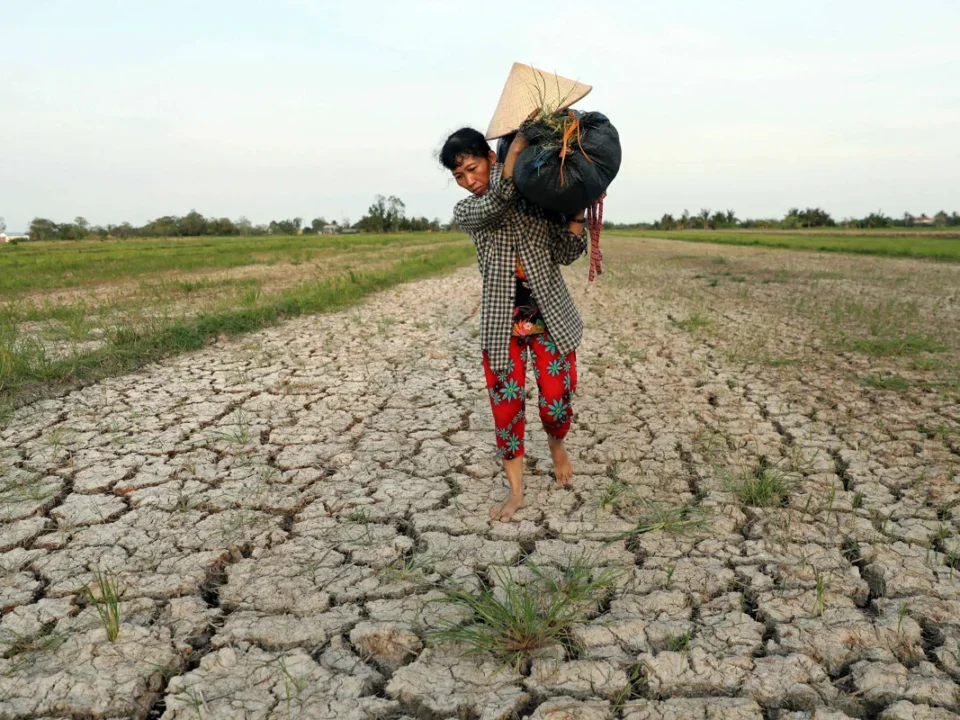
A Vietnam Without Water — Challenges and Directions
April 30, 2024Vietnam’s Strategic Shift: Reform, Growth, and Global Positioning
Vietnam is in the midst of sweeping transformation. While its political system is navigating high-profile changes and long-standing traditions still exert strong influence, the country’s overall economic outlook and foreign policy remain stable and forward-looking. Vietnam’s integration with the global economy is accelerating, even as it manages complex domestic dynamics. This article explores how Vietnam is reshaping its political framework, strengthening its economy, advancing digital transformation, and strategically maneuvering through regional and global geopolitical currents.
Domestic Political Reform and Anti-Corruption Measures
Vietnam’s ongoing political reform is most visible in the Communist Party’s intensified anti-corruption campaign. The push is not only about rooting out misconduct but also about modernizing governance, improving transparency, and securing socio-economic progress. These reforms aim to build public trust, attract international investors, and demonstrate institutional credibility.
Notably, recent removals of high-level leaders such as President Vo Van Thuong and National Assembly Chairman Vuong Dinh Hue due to corruption allegations signal a major shift. The government is sending a clear message: accountability and integrity are now central to Vietnam’s governance model. These changes point to a deeper cultural and institutional shift that supports long-term political sustainability.
This evolving governance landscape plays a key role in enhancing Vietnam’s global image, reinforcing its strategic stability in the eyes of international investors and foreign governments alike. It aligns directly with Vietnam’s aim to become a more trusted player within the ASEAN region and beyond.
Vietnam’s Economic Growth Outlook for 2024
Vietnam’s economic outlook for 2024 is robust, with multiple international institutions forecasting GDP growth between 5.66% and 6.48%. The Asian Development Bank projects a growth rate of 6.0%, while Fitch Ratings places it slightly higher at 6.3%. Domestic analysts are more optimistic, with some projecting up to 6.48% under favorable market conditions.
This growth is driven by strong inflows of foreign direct investment (FDI), especially in the manufacturing and services sectors. These sectors have posted year-over-year gains, reaffirming Vietnam’s reputation as a regional manufacturing hub. Strategic reforms around public investment and climate resilience are further enhancing long-term economic sustainability.
Vietnam’s ability to balance domestic economic initiatives with global demand makes it one of the most dynamic emerging markets in Asia. This mix of macroeconomic stability and structural reform supports Vietnam’s ambition to climb the global value chain and become a middle-income country with high-quality growth.
Vietnam’s Digital Transformation and Emerging Gig Economy
A key pillar of Vietnam’s growth strategy is digital transformation. The government is investing heavily in digital infrastructure, with platforms like VNeID enabling citizens to access public services via mobile apps. These tools not only improve service delivery but also enhance transparency, foster open-data governance, and stimulate the digital economy.
At the same time, Vietnam is experiencing a surge in gig-based employment. Enabled by mobile apps and online platforms, the gig economy offers flexible work for a new generation of freelancers, contractors, and service providers. While these jobs often lack traditional benefits like pensions or social insurance, they provide entry into the labor market for tech-savvy youth and contribute to the overall modernization of Vietnam’s workforce.
The digital economy is expected to contribute significantly to Vietnam’s GDP by 2025. Paired with the rise of mobile commerce, digital banking, and AI applications, Vietnam’s digital transition is reshaping its labor landscape and accelerating national competitiveness.
International Relations and Geopolitical Strategy
Vietnam’s foreign policy continues to emphasize balance, pragmatism, and strategic autonomy. The country has skillfully managed its relationships with both China and the United States, leveraging economic partnerships while avoiding alignment with any single major power.
Vietnam’s nuanced diplomacy is especially critical in the context of rising U.S.-China tensions. Its ability to maintain open economic ties with both nations underscores a strategic independence that enhances its regional influence. Furthermore, Vietnam’s engagement within ASEAN contributes to collective responses on maritime security and trade policy, particularly in the South China Sea.
These external strategies align with internal priorities — Vietnam is expanding its international presence without compromising national interests. The country’s active diplomatic role in peacekeeping and regional stability enhances its credibility on the world stage and supports sustainable development goals.
Conclusion: A Blueprint for Sustainable and Strategic Development
Vietnam’s transformation is defined by political reform, economic modernization, digital innovation, and agile diplomacy. Each of these elements reflects a deliberate national strategy to position Vietnam as a regional leader and responsible global partner.
Despite internal challenges and global uncertainty, Vietnam’s model of governance is becoming more transparent. Its economy is becoming more resilient. Its people are becoming more digitally connected. And its leadership is taking calculated steps to maintain independence in a complex geopolitical environment.
Vietnam’s strategic pivot is far from complete, but the foundation is firm. As the country moves forward, it offers a compelling case study in how long-standing traditions can evolve alongside bold, future-ready reforms — all while staying rooted in national sovereignty and regional cooperation.
Sources:
Vietnam Briefing. (2024). Vietnam economy set for strong growth in 2024. Retrieved from https://www.vietnam-briefing.com/news/vietnam-economy-set-for-strong-growth-in-2024.html
Asian Development Bank. (2024). Asian Development Outlook 2024. Retrieved from https://www.adb.org/publications/asian-development-outlook-2024
Fitch Ratings. (2024). Vietnam economic forecast: 6.3% growth projection. Retrieved from https://www.fitchratings.com
Vietnam.vn. (2024). Vietnam projects 6.48% GDP growth under favorable conditions. Retrieved from https://vietnam.vn
Fox, L., Senbet, L., & Demirguc-Kunt, A. (2017). The future of work in developing countries. World Bank Research.





